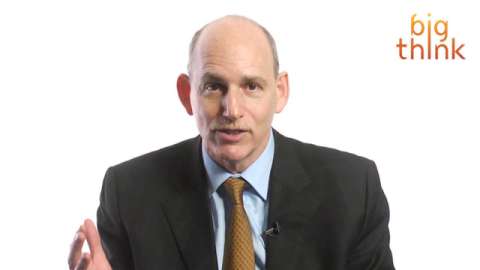My Lifelong War on the War on Drugs

Why did I get involved in the movement to reform drug laws? There’s no single one answer. But I’d say part of it had to do with growing up in a Sabbath-observant Jewish family. My father was a rabbi, my mom came from an Orthodox family. You know, fairly moral. Going to college in the mid 70s I started to smoke marijuana occasionally and wondered why people were getting arrested. Why did I have to worry about getting arrested for this sort of thing?
Some years later when I was in graduate school and law school I was trying to think about what most interested me. And this whole issue of how we dealt with drugs and crime was fascinating to me. So I got myself a security clearance. I went to work in the State Department’s Narcotics Bureau. I wrote the first classified report on the U.S. efforts to deal with drug related money laundering. I interviewed DEA and other law enforcement agents in 19 countries around the world.
I wrote a dissertation and a book called Cops Across Borders on the internationalization of criminal law enforcement, and another book called Policing the Globe on a similar subject, which the guys in the DEA really liked. But all along I knew that this whole policy was absurd. So I read deeply and in the late 80s when I was teaching at Princeton the drug world was at its peak hysteria. It was like a modern day version of McCarthyism.
And I was among a small number of people who stood up and said this is crazy. We’re not saying legalize all drugs but we better understand that most of our drug problems are the result of a failed prohibitionist policy. And I kind of got my first 15 minutes of fame as a 31-year-old assistant professor at Princeton and it happened again a year later. I began to develop a growing number of allies and associated with the organizations that were emerging.
And then in the mid 90s I had the good fortune to get a phone call from the philanthropist George Soros inviting me to lunch. We hit it off and he basically said let’s put some money behind these ideas. And so I left the university to create the organization I now head which is the leading organization in the world promoting alternatives to the war on drugs. So since then it’s been building it, doing ballot initiatives and lobbying and legislation and litigation and public education in the U.S. and to some extent around the world.
But I think I decided more or less 20 years ago when it kind of dawned on me that this was my calling in life. One way or another I was devoting the rest of my life to teaching and educating about drugs and the way we deal with these things. And ultimately this was not just about drugs. Talking and teaching and thinking about how we deal with drugs in our lives and our society and our laws is really a way of addressing broader issues in our society.
In Their Own Words is recorded in Big Think’s studio.
Image courtesy of Shutterstock





